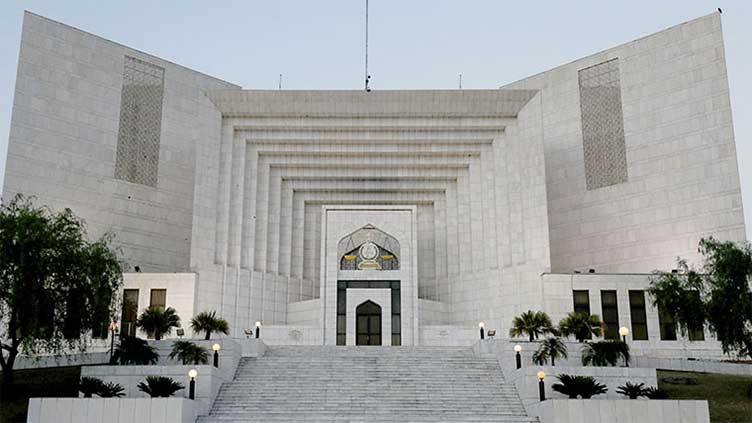Army Act applies to military personnel, observes Justice Mandokhail

Pakistan
The judge gave the remark during the hearing of case against trial of civilians in military courts
Justice Rizvi inquired whether amendments to Army Act in August 2023 can be applied with retrospective effect
ISLAMABAD (Dunya News) – Justice Jamal Khan Mandokhel on Monday remarked that crimes committed under the Army Act are applied only to military personnel.
He gave the remark during the hearing of the intra-court appeal against the trial of civilians in military courts in the Supreme Court.
Headed by Justice Aminuddin Khan, a seven-member constitutional bench is hearing the case. The bench includes Justices Jamal Mandokhail, Muhammad Ali Mazhar, Hassan Azhar Rizvi, Musarat Hilali, Naeem Akhtar Afghan and Shahid Bilal Hassan.
Justice Khan told the counsel for the Ministry of Defense, Khawaja Haris, to conclude arguments by tomorrow.
Advocate Haris argued that the Supreme Court had declared Section 59 of the Army Act (4) unconstitutional, to which Justice Mandokhel remarked that many crimes are mentioned in the Army Act, and according to the Act, all crimes will apply to military personnel.
The counsel said that the Army Act would be considered in the context of the provisions 2D(1) and 2D(2) of the Official Secrets Act, and the trial of civilians falls under Section 31D of the Army Act.
Justice Mandokhel observed that Section 31D related to inciting soldiers to refrain from performing their duties. “It remains to be seen whose case will go to military courts.”
Justice Hilali remarked that the Constitution also validates many tribunals, and the key issue is to determine which cases should be heard where and how.
Justice Mandokhel inquired him whether the trial of civilians in military courts will be called a court martial? Advocate Haris replied that trial by military courts is court martial.
Justice Hilali questioned him if an army officer suspends the Constitution, is there a punishment for the crime in the Army Act?
Khawaja Haris responded that the Article 6 provides punishment for the crime. The Article 6 takes precedence over every law. The [Army] Act also punishes the violation of oath.
Justice Mandokhel remarked that the judiciary had been validating martial law in the past and the question is if Article 6 is applied to those judges.
Justice Mazhar observed that in the Pervez Musharraf case, the names of the judges were initially included, but were later excluded from the treason trial.
Justice Rizvi inquired whether amendments made to some sections of the Army Act in August 2023 could be applied with retrospective effect to the events of May 2023. He asked if the amendments could be used to try the accused involved in the May 9 incidents under the amended Army Act.
Advocate Haris responded that the accused appointed counsel and hearings took place. Justice Rizvi remarked that it had already been indicated that the court had announced judgements in some cases and reserved judgment in others.
Justice Mazhar said he wanted to know how the witnesses were classified. He observed that there should not have been a joint trial. There are provision in writing but the question is that whether they have been implemented practically.
Justice Mandokhel observed that since the beginning of the hearing, he had been concerned about whether a common man falls under army discipline or not.
Later, the Supreme Court adjourned the hearing until tomorrow (Tuesday).


